The All-In-One Citrus Tree for Every Home and Patio
Why Meyer Lemon Trees?
Meyer Lemons are different from the small, tart and acidic lemons at your grocery store because the fruit is literally a cross between traditional sour lemons and sweet oranges – yes, you get both sweet and savory flavors from each squeeze of this world-beating fruit!
As you know, the fruit available at your grocery store is not chosen for flavor but rather shelf life – that is why the lemons available to you are small with very thick skin. Meyer Lemons are not available in grocery stores because the fruit skin is so wonderfully thin that it would bruise while riding in a crate – however, the thin skin is perfect for home chefs that want tantalizingly fresh fruit right off the branch! The thin skin allows the citrus juices to develop fully, making it the perfect raw fruit for juices, desserts, and flavoring.
Can I grow it? YES, YOU CAN! The Meyer Lemon Tree has remarkable cold and heat tolerance so anyone in the country can grow it – if your winters get cold, simply bring your Meyer Lemon Tree indoors for the winter. Our trees max out at around 8 feet so you don’t have to worry about them out-growing your space. And when you bring it indoors, you can enjoy the jasmine-citrus fragrance throughout those long winter months. If your sun exposure or growing conditions are less than ideal, then we recommend you start with one of our larger trees.
Place your order NOW and have your own Meyer Lemon Tree delivered right to your door.
Looking for that unique gift? Look no further! It’s the gift that truly keeps on giving – a memorable keepsake to commemorate holidays, housewarmings, birthdays, bereavements – this tree will produce fruit for decades and every time someone picks a lemon they will think of you!
Why Fast-Growing-Trees.com is Better
Are all Meyer Lemon Trees equal? No! A Meyer Lemon Tree from Fast Growing Trees is different:
• Our Meyer Lemon Trees are greenhouse-grown. We control how much light, heat, and water the trees receive to ensure you get the best tree imaginable- many trees that we ship to customers already have fruit on them!
• Our Meyer Lemon Trees are grown in their existing pots. Unlike the violent process of digging a tree out of the ground, our trees are nurtured to full potential without disrupting the roots so you receive the happiest and healthiest tree available.
• Fast Growing Trees only sells the “Improved” Meyer Lemon variety – the only cultivar that has proven disease-resistant capabilities.
• When you order our larger-sized Meyer Lemon Tree, you can look forward to faster fruiting...even in the first year of growth! Our larger sizes are perfect for those who don't want to wait to harvest delicious lemons.
You’ve heard the chatter, now it’s time to try for yourself – this is the tree that so many home chefs have been successful with – start enjoying that sweet fruit immediately and order yours today!
Planting & Care
1. Planting: It is best to plant the Improved Meyer Lemon Tree in a warm, sunny area where the soil drains well. Six hours (or more) of direct sun is best for the tree. Planting next to a house or under an eave will provide some frost protection. Remember to water the Improved Meyer Lemon Tree deeply once every seven to ten days in midsummer (newly planted trees may need more frequent watering until established), and water less often if it rains or if the weather is cool.
If you're planting in a container, select one that is 1 to 2 pot sizes larger than what it initially arrived. Then, fill with a well-draining cactus or citrus soil, 2 inches of compost, water well, and place near a South-facing window.
*Note: The leaves of the Meyer Lemon can be toxic to pets.
2. Watering: Allow the soil to dry down to 2 inches between waterings.
While the roots prefer to stay on the dry side, citrus leaves love humidity. Indoor Citrus will do best if misted daily, especially when you are running your heat during cooler months. You can also use a humidifier or fill your pot's saucer with rocks and add water; place your plant on the rocks ensuring the bottom of the pot is above the waterline.
3. Pollination: For indoor plants, simply take a small, dry, fine-tipped paintbrush and stick it into the center of the bloom. Swirl it around and collect the pollen on the brush. Go to the next bloom and repeat the process until every bloom has been treated. Do this once daily and don’t wash the paintbrush until after the blooms have been pollinated. The bloom will fall off naturally and the fruit will begin to form.
4. Fertilizing: Fertilize regularly with a high-nitrogen blend each month between April and September.
FGT Tip: Yellowing leaves may indicate the need for more fertilizer.
5. Pruning: Prune as needed to maintain your Lemon Tree's shape. Clip off any branches that are too long. Remove branches growing toward the trunk of the tree instead of away from it. This will maintain airflow between the branches.
FAQs
How long does it take for a Meyer Lemon Tree to produce fruit?
It depends on how old your Meyer Lemon Tree is to start with. Typically, a Meyer Lemon Tree that is around 3-4 feet tall will be fruit-bearing age. As your tree gets more acclimated and older, it will be able to produce a larger harvest.Do Meyer Lemons need full sun?
Meyer Lemon Trees do best when they are provided at least 6-8 hours of full sunlight per day. Too little sunlight will result in lack of fruit and slow growth.
Can Meyer Lemon Trees grow indoors?
Your Meyer Lemon can grow indoors as long as you provide the proper care and climate. When planted indoors, make sure to hand-pollinate the flowers to ensure fruiting, since they will not have access to outdoor pollinators.When do you water Meyer Lemon Trees?
Allow the soil to dry down to 2 inches between waterings. While the roots prefer to stay on the dry side, citrus leaves love humidity. Indoor Citrus will do best if misted daily, especially when you are running your heat during cooler months. You can also use a humidifier or fill your pot's saucer with rocks and add water; place your plant on the rocks ensuring the bottom of the pot is above the waterline.How do you fertilize Meyer Lemon Trees?
Fertilize regularly with a high nitrogen blend each month between April and September. Yellowing leaves may indicate the need for more fertilizer.
How do you prune Meyer Lemon Trees?
Prune as needed to maintain your Lemon Tree's shape. Clip off any branches that are too long. Remove branches growing toward the trunk of the tree instead of away from it. This will maintain airflow between the branches.

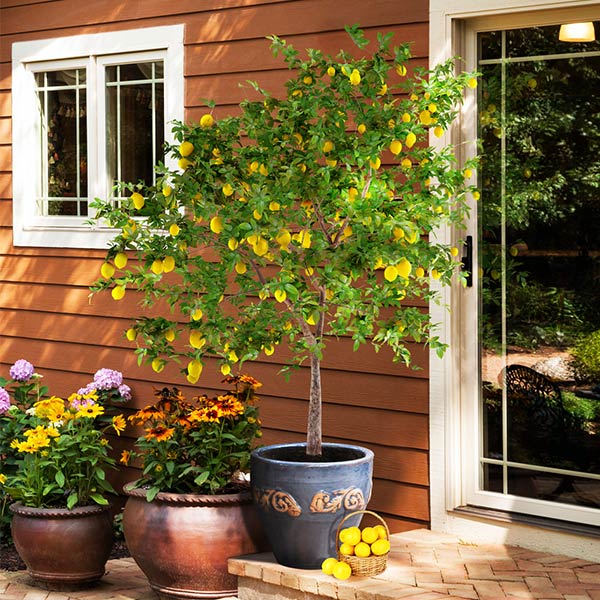
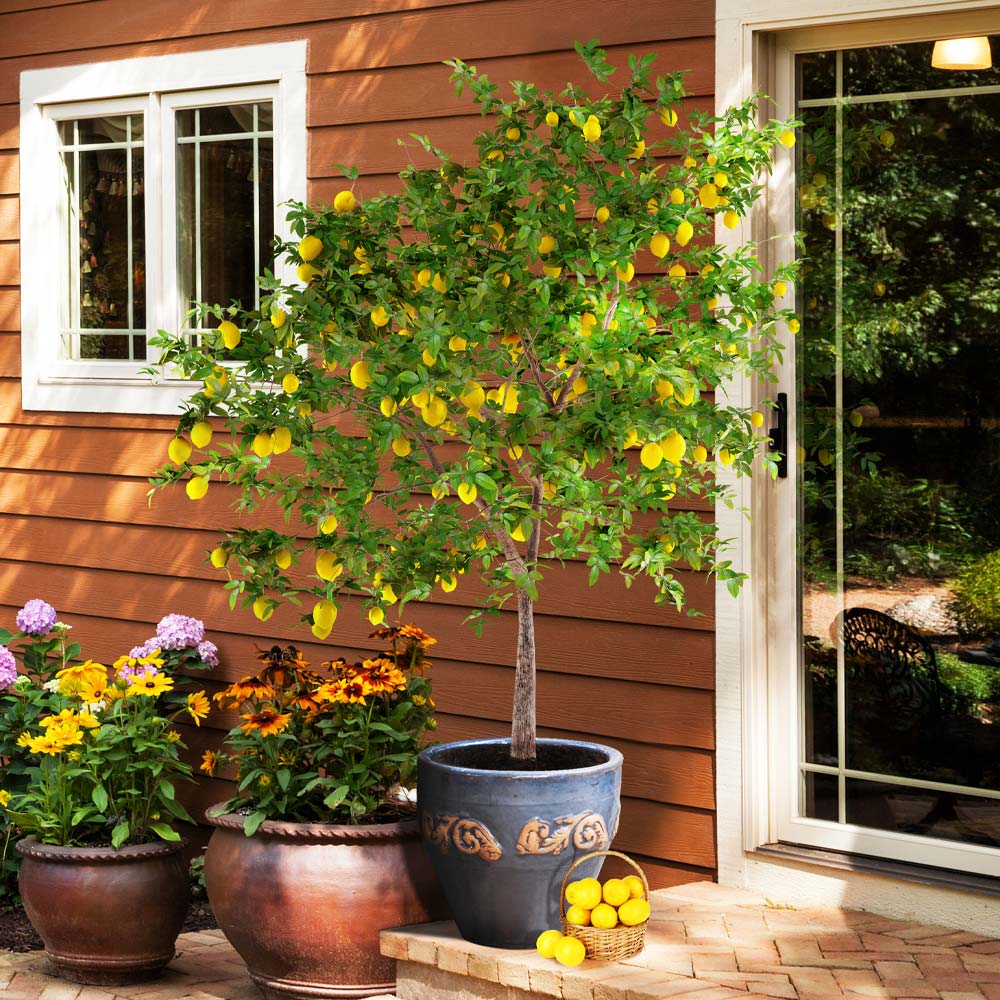
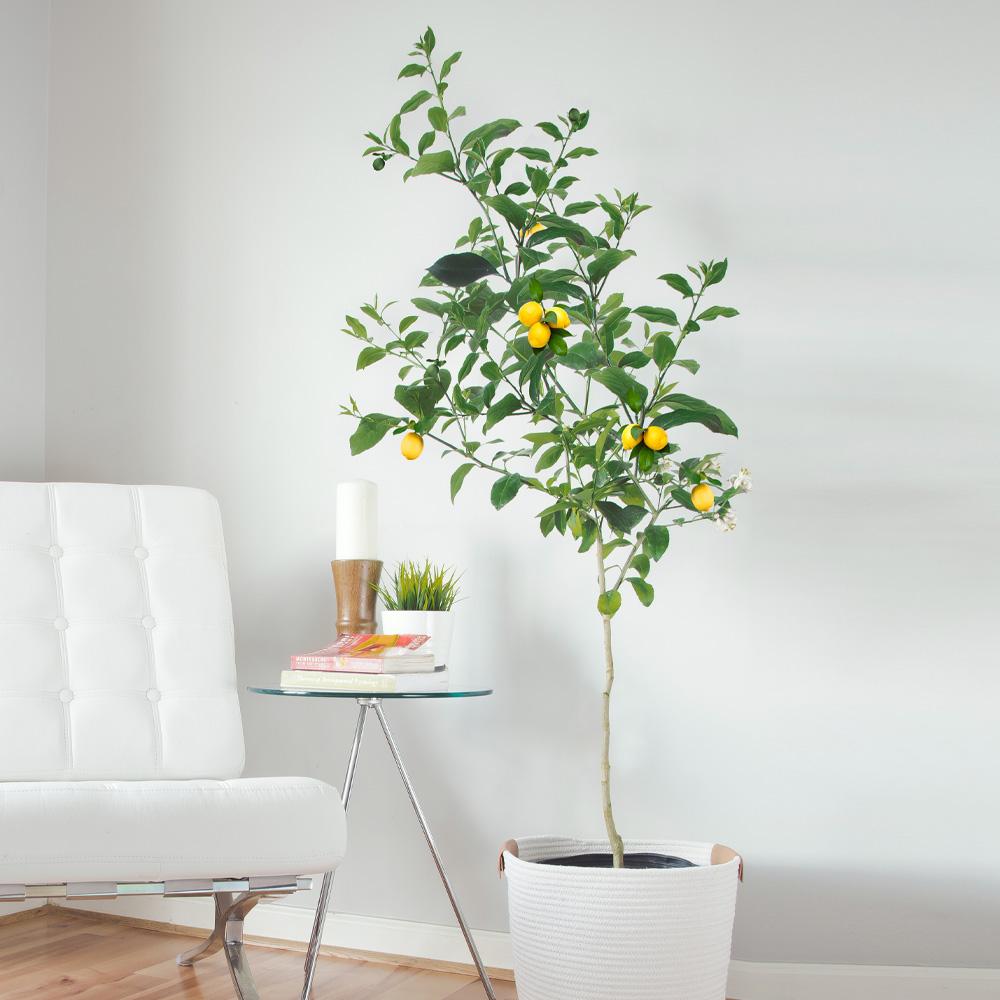
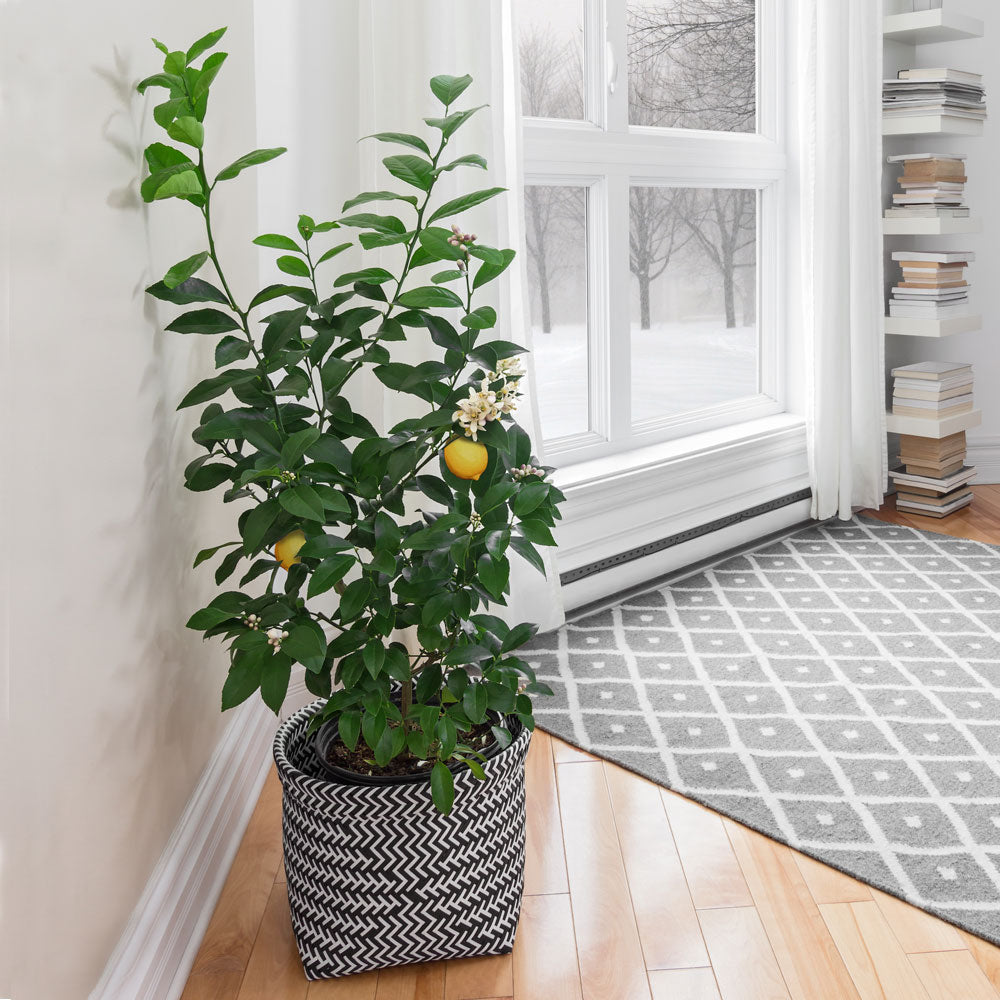
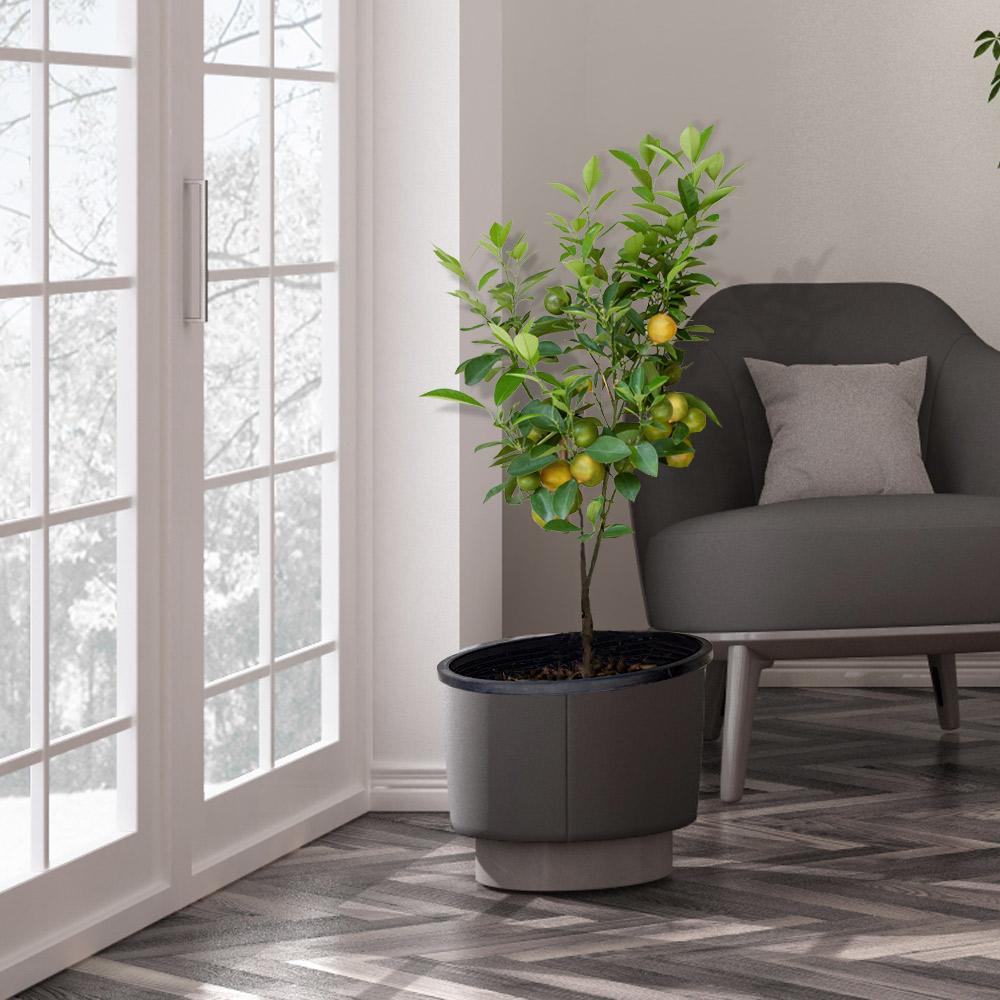
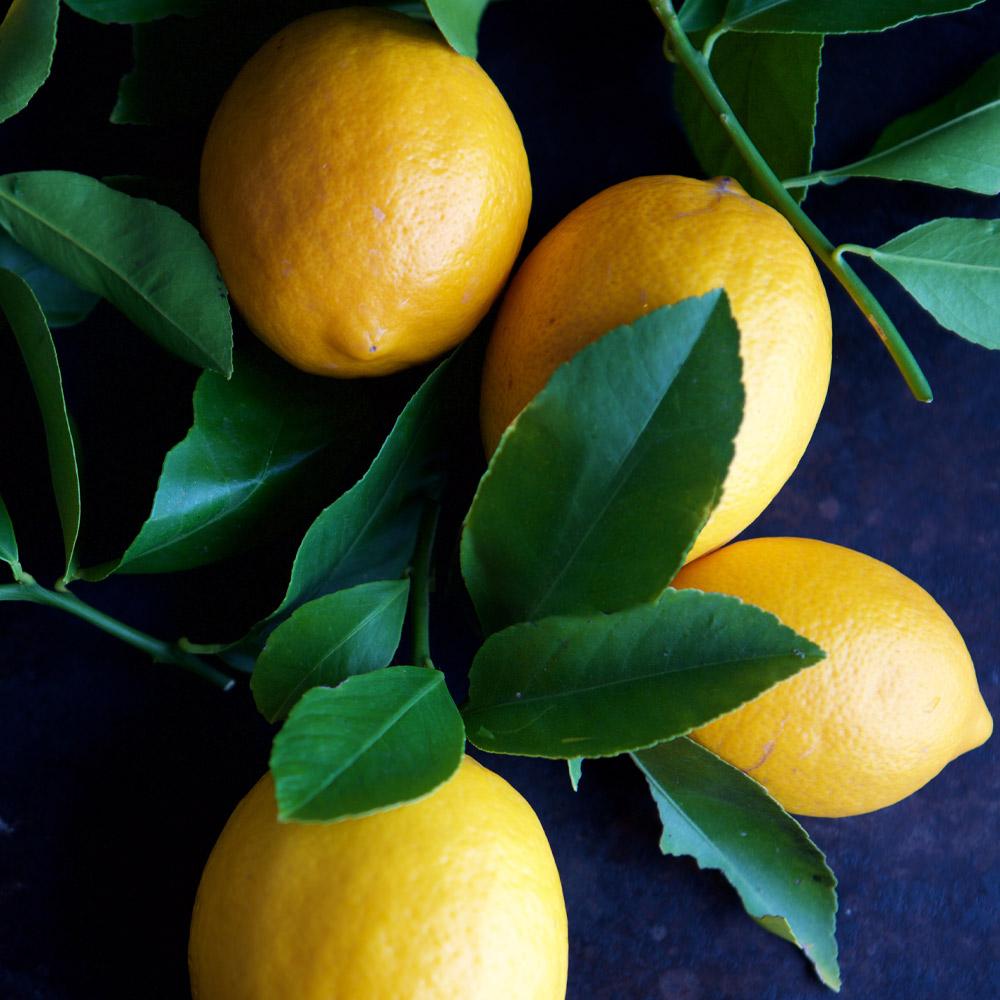
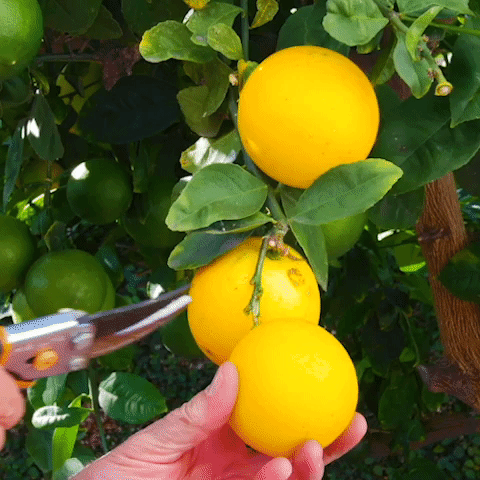
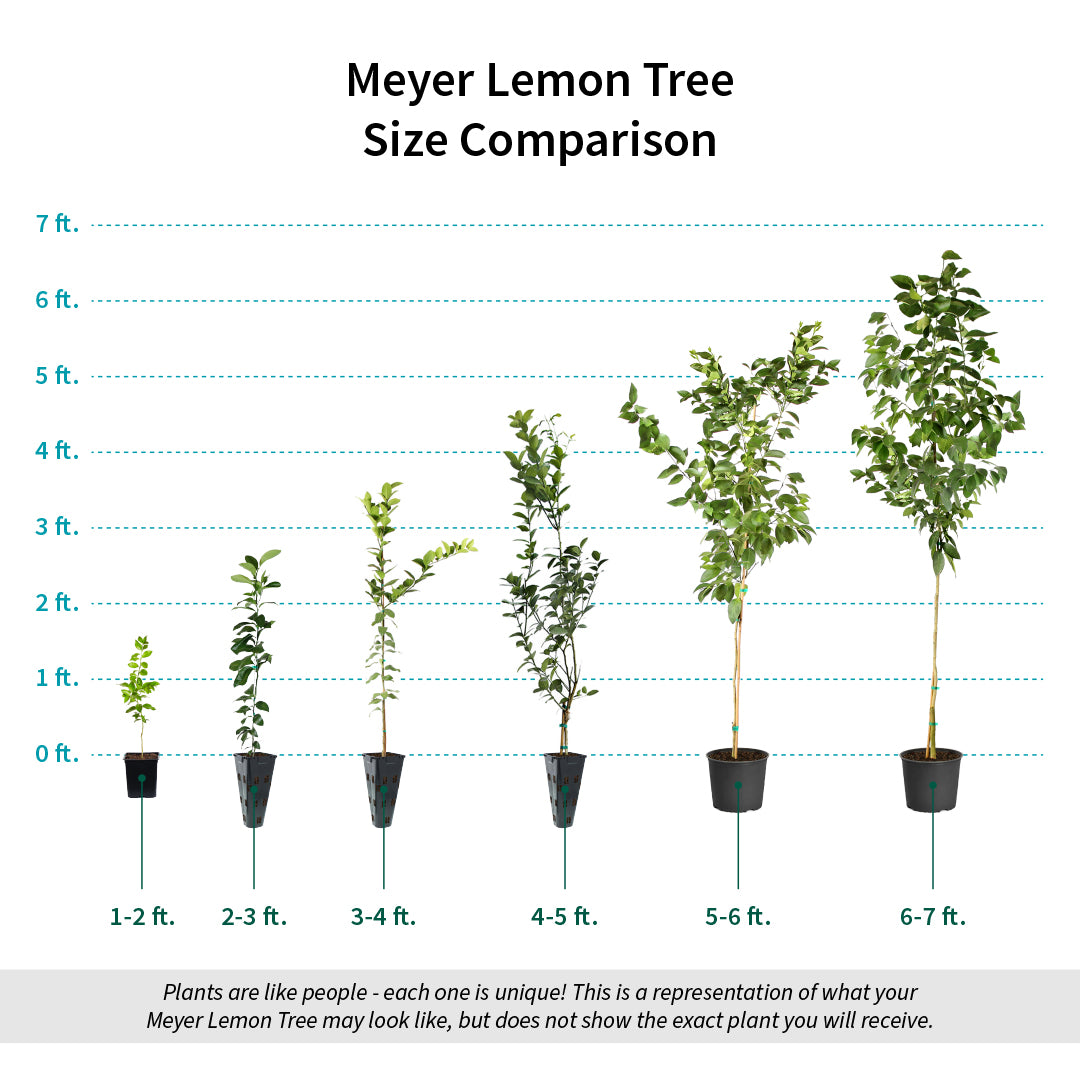

Comment